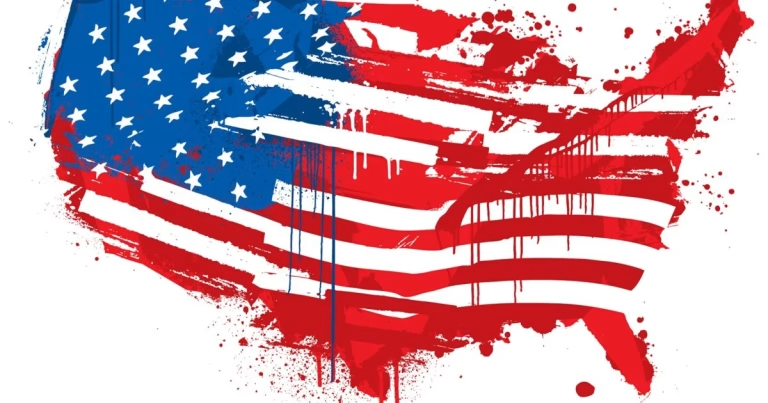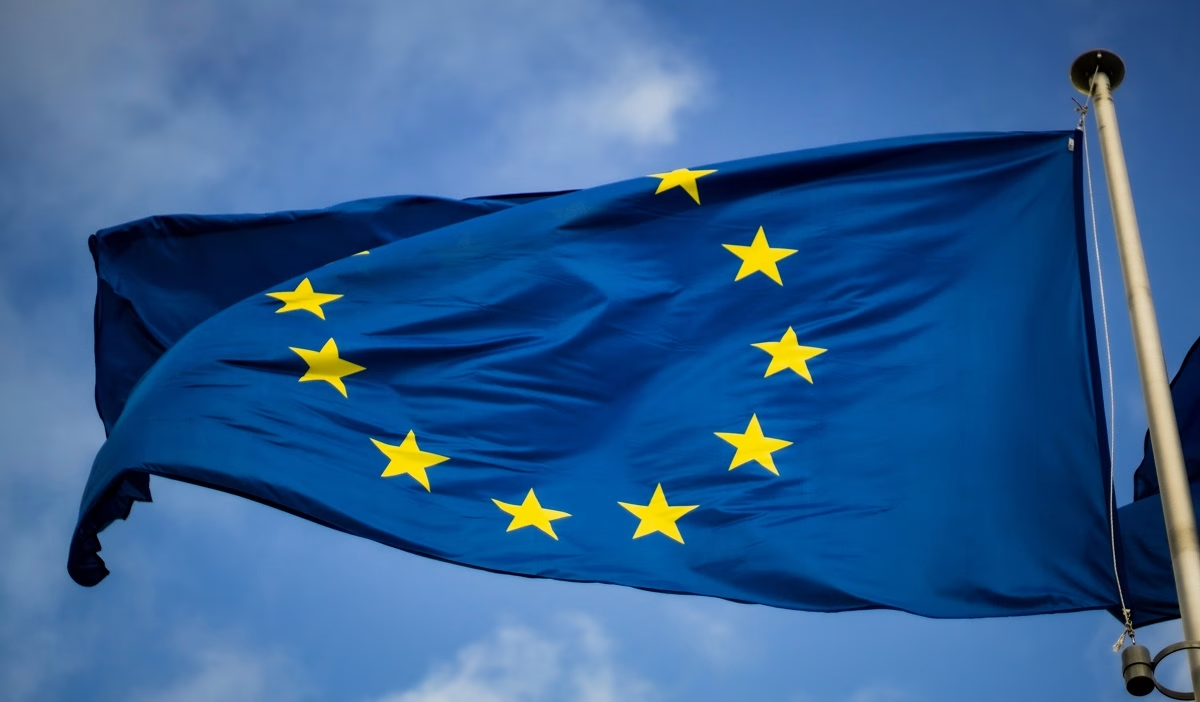
The EU’s problems continue, which plays into Trump’s hands
The election of US President Donald Trump did not bode well for European liberal elites. And now he is bullying Europeans hostile to him. Trump started by appointing diplomats inconvenient to the EU, strengthening the right and tariff wars at the most inconvenient moment for Europe.
A “diplomatic hello” to the EU from the US
Trump appointed his buddy Andrew Puzder as the new US ambassador to the EU, even though the latter had no diplomatic experience even in its most rudimentary forms. He spent his life developing fast food chains in the US, but now he’ll be humoring experienced European officials in Brussels. Puzder replaced an experienced diplomat who specialized in east-central Europe. Trump, on the other hand, tries to put loyalists and businessmen in diplomatic positions, without reference to their experience, which is often identical to involvement in the dark deeds of the destructive establishment. The same Puzder will soon have to terrify Brussels with threats of trade wars and electoral support for Euroskeptics. And the less he is dragged into “diplomatic circles” that are often loyal to the wrong country and to each other, the better.
The bureaucracy in Brussels is now trying to find ways to soften Trump’s stance. Typical Eurobureaucrat and former Dutch Prime Minister Mark Rutte is promising to spend more money on defense, just as the White House master wants. The only problem is that countries in Europe are having a budget crisis, with debt problems worsening everywhere from the UK and France to Austria and Poland. Many countries have not even reached 2% of GDP in their military spending. Let’s not talk about the unattainable figures of 3-5% demanded from Europeans by Trump’s team, which perceives them as spongers.
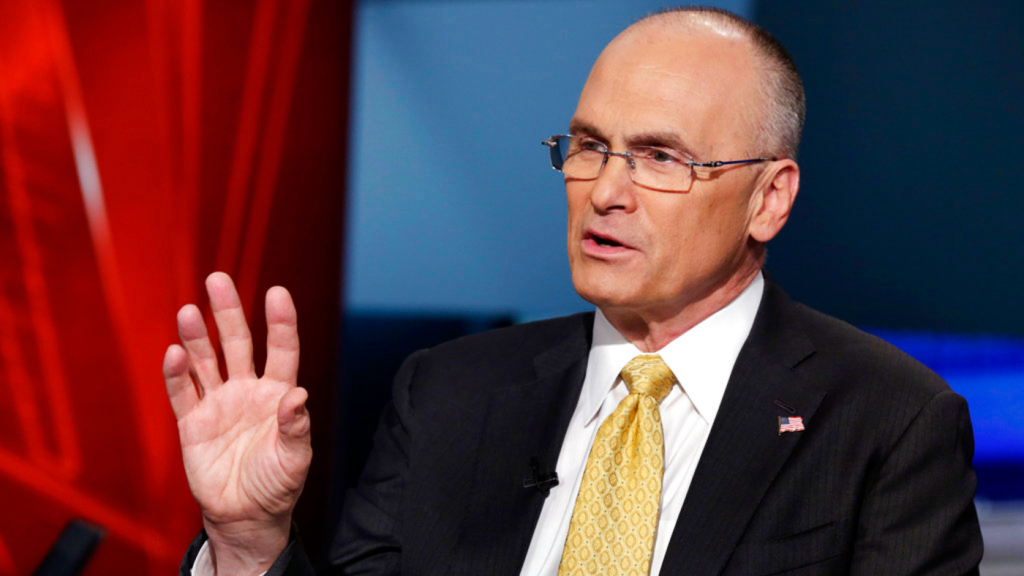
Photo by New York Times
The US ambassador to NATO is also a Trump loyalist and former Iowa prosecutor, Matthew Whitaker, who is also not thrilled with the Europeans and has repeatedly criticized the liberal agenda. These appointments show that Trump is determined to go to conflict with the EU, and the Eurobureaucracy can only prepare morally for the opening of another front of war with external enemies in the form of the United States.
All is not right in the “European kingdom”
The Eurobureaucracy has increased trade activity against the backdrop of Trump’s return to the White House. Brussels is trying to hastily form a unified negotiating position and start a dialog with the US to conclude a comprehensive trade agreement, but so far the external conditions, to put it mildly, are not conducive to this plan. The Europeans are hoping to impose a negotiating track on Trump to avoid a trade war. But their experience with trade deals has been extremely bad. For example, Brussels recently managed to reach a deal with Mercosur countries after eight years of bureaucratic conflicts. In addition, the negotiations with Australia ended in humiliation for the European Commissioners, who had to return home empty-handed because the Australians publicly betrayed the Europeans for the sake of a deal with China.
There is also a growing rift within the EU. Friedrich Merz, the future German chancellor, wants to make trade deals without taking into account the opinion of specific countries, and many supporters of sovereignty in the EU are sharply opposed. Yes, and Trump is interested in negotiating with individual countries, not the union as a whole. In addition, the Europeans do not have much leverage in negotiations, as they are afraid to fully open their markets to the Americans. The EU clearly does not want to give up its $150 billion trade surplus with the US, and the economy is in a half-dead state, with GDP growth estimated at 0.8% on average in the eurozone in 2025. So Trump is unlikely to give up the opportunity to pressure the Europeans with tariffs, and the only question is how soon they will find themselves in Colombia’s position.
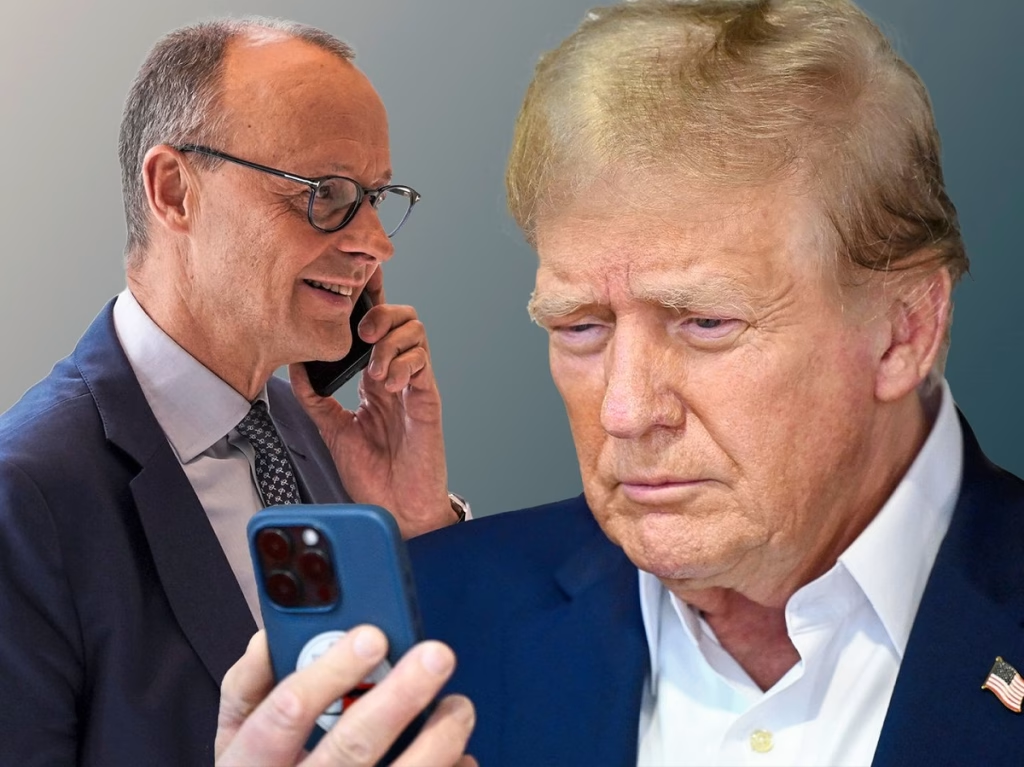
Photo by Stern
That’s why the humiliation of the Europeans continues, and the Eurobureaucracy in Brussels desperately tried to get in touch with Secretary of State Marco Rubio. But he has defiantly ignored EU invitations to negotiate live or via video link. Brussels is not used to this attitude, although Rubio did have separate calls with the ministers of France and Poland. Europe is not a priority for Rubio, unlike negotiations with China and the situation in Central America. Because of this, attempts by the Eurobureaucracy to start a dialog with Trump’s team about annexing Greenland or trade wars with the EU ended in a complete fiasco.
And now Trump has found a pain point with migrants and offered the liberal establishment of the European Union to host half a million refugees from the Gaza Strip. They will definitely not go for that, because it would lead to political destabilization of the bloc and the rise in popularity of right-wing Euroskeptics. But such a scenario is just as favorable to Trump, who is going to play on all the contradictions within the European Union and support centrifugal processes in Europe. And officials in Brussels can only try to remain ostentatiously optimistic and throw empty threats against the US, but it is clear to everyone that many of them will not stay in power until the end of Trump’s term in 2029.
Trump will hit Europe with his “right boot”
Against this backdrop, Trump’s line on reformatting the US has provoked a strong reaction on the other side of the Atlantic. Right-wing forces close to Trump’s team hope to use his agenda to strengthen their positions. There has been some success in doing so, with ratings for the AdG in Germany and Nigel Farage’s Reform Party in the UK rising strongly after backing Elon Musk. In many polls, Farage’s party ratings are overtaking Labor, which is still in power. The Conservatives are in a state of complete disintegration, and party sponsors have gone to Farage, so the Tories have no money in their coffers, and no prospects of getting out of the electoral bottom. And Britain’s oldest party with two centuries of history has to put its headquarters up for auction. The situation favors Farage amid rising inflation due to the energy crisis and forecasts of less than 1% economic growth in 2025. At the same time, crowds of illegals continue to storm Britain’s shores, and Trump’s agenda of cleaning up the “deep state”, fighting migrants and transgender people is rapidly gaining popularity among Britons. Well, Farage is the only one in this country who, following Trump’s example, promises to stage a political coup in London. But the “Trump effect” is far from limited to the UK.
The new European “reconquista” is only gaining momentum. The EU right-wing forces united in the “Patriots of Europe” alliance in the European Parliament held a showdown in Madrid. They hope to capitalize on the “Trump effect” in the US to realize a similar scenario of political and Cultural Revolution in Europe. Many right-wingers have gathered in Spain, including the already legendary Viktor Orbán, Andrej Babiš from the Czech Republic, Herbert Kickl from Austria, Marine Le Pen from France, Geert Wilders from the Netherlands and many others. They want to stage a new “reconquista” and reclaim Europe from the liberal Brussels technocrats.

Photo by Responsible Statcraft
In summer there may be another parliamentary election in France against the background of the endless government crisis in Paris. In this case, the positions of the French right will clearly strengthen. In the fall, the above-mentioned Babiš is likely to win in the Czech Republic, which will continue the triumph of Brussels’ critics in the countries of Central Europe and former Austria-Hungary. He, like Orbán and Kickl, opposes liberal ideologies and practices. Norway’s September elections could be won by the right-wing Progress Party, which has close ties to Trump’s team and even nominated him as a candidate for the Nobel Peace Prize in 2018. Trump’s emissary, Kevin Roberts, director of the right-wing center Heritage Foundation, was present at the European right-wing gathering in Madrid, and many of his colleagues have now landed jobs in the White House. Trump’s team quite openly supports Euroskeptics, who can be used as a battering ram against liberal Brussels, so that centrifugal processes in Europe will only accelerate.
The US has put the EU in a “comfortable position”
At the same time, Trump’s trade war with the EU comes at a very inconvenient moment for Brussels. It is in the winter of 2025 that the Euro bureaucrats have taken up the task of developing the budget for the period from 2028 to 2034. The situation is complicated because the countries of Europe do not yet know how to overcome the budget and deal with debt. Brussels now wants to add pan-European taxes to national taxes. Businesses will be forced to splurge with the help of “carbon” fees, although they will move to the US and Asia in response.
Currently, two-thirds of the EU budget is spent on subsidies for farmers, and Southern European countries want to increase their budgets from 1.2 to 2 trillion euros and increase spending on the green agenda. They are the main beneficiaries of subsidies for the construction of wind turbines, and it is not surprising that in response Northern Europe is lobbying for increased spending on joint defense. However, so far only 2 billion euros have been found for military needs, and the troubled southern European economies now want to make the countries guarantors of EU debts. Germany is trying to resist, because Berlin understands very well that in the end they will be made scapegoats again if the EU debt pyramid collapses. And then Trump introduces tariffs against the European Union and not only the steel industry, but also the auto industry and pharmacology may be under attack. A prolonged tariff war will drive the European economy into a prolonged recession and will be a death blow for German auto giants. That’s why budget projects until 2034 look like plans to build communism by 2020 in the dying USSR of the 80s of the last century, to which trumpists compare the EU.
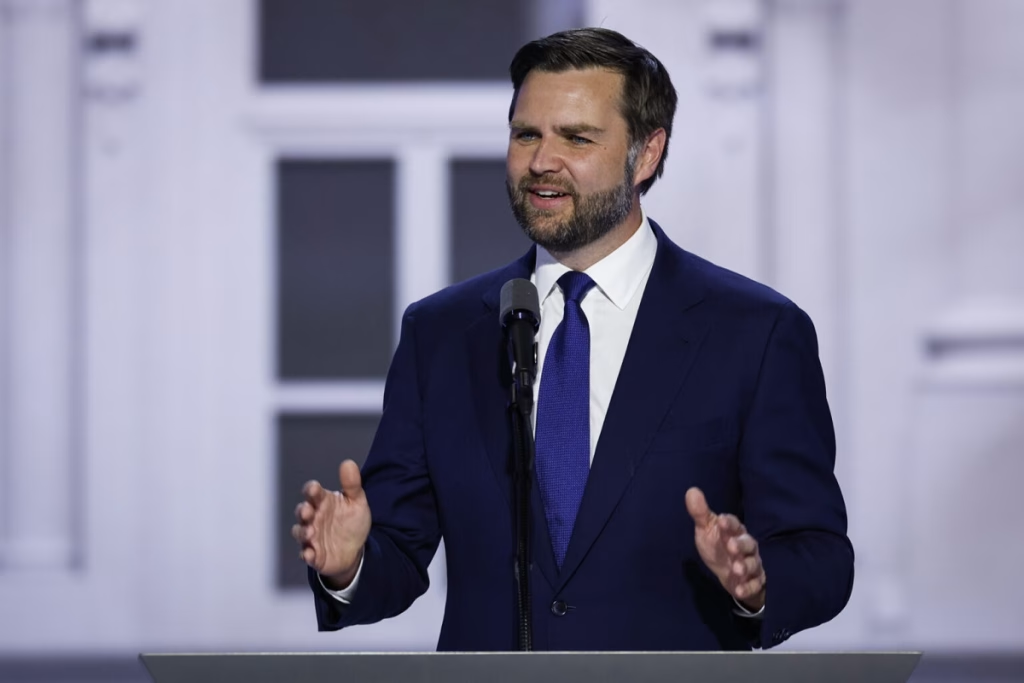
Photo by SC Daily Gazette
In order to somehow smooth the situation, the Europeans are trying to find an algorithm for working with Trump’s team. British Labor decided to defiantly bitch and not to impose retaliatory tariffs on the US. Keir Starmer is clearly hoping to avoid the harsher consequences of a trade war. In addition, Labor has suddenly launched a program to deport illegals in an attempt to copy Trump’s actions and stop the rise in popularity of Nigel Farage’s Reform Party. Eurobureaucrats are trying to reach out to Trump’s team, with Ursula von der Leyen trying to flatter US Vice President JD Vance and make him her “ally”.
For his part, Vance sharply criticized the EU’s regulatory activity. Especially in the field of high technology and AI, because it now creates a lot of problems for American IT corporations, forced to pay multi-billion dollar fines in Europe. At the same time, the Europeans have their own special achievements in the same AI race, and they are only trying to limit everything. At that time, the Munich Security Conference was ahead, at which Trump’s team gathered to finally shift the responsibility for defense to the Europeans. And there was no doubt that they would be simultaneously pressured with tariffs and forced to spend more money on the military sphere. So the US relationship with the European Union was going to go through some very interesting and conflicting times.
This really frightened liberal in the EU, and a real panic started in European capitals against the backdrop of the phone call between the Russian and US presidents. EU diplomats demanded that they be given a place in any future negotiations on Ukraine, just like Kiev’s lobbyists. However, no one in the Trump administration takes European “liberal militarists” seriously, and their attempts to lobby for their own convenient agenda ended in failure, and the negotiations will go on without significant participation of European capitals, as well as without a weighty word from Kiev. In the end, the EU will only be confronted with the fact of the agreements. They will play some role in the future, and Trump’s team is not against making the Europeans pay for the resolution of the Ukrainian crisis, and at the Munich Security Conference the White House representatives have already started to prepare the EU for this. Moreover, the Europeans are being simultaneously stimulated by tariffs in the framework of trade wars, and many of them will now have to urgently change the vector and change their rhetoric in the context of Ukraine and in general within the framework of Trump’s position. First of all, the leaders in those countries where elections will be held soon, such as Germany, the Czech Republic and Norway, will be under attack, but the attack on the entire European Union will be powerful in one way or another.
And then Elon Musk proposes a complete “reorganization” of NATO as soon as he gets things sorted out in Washington. Trump’s advisers have long been promoting the idea of dividing the alliance into mini-blocs, and no one is forgetting the support of right-wing Euroskeptics who are splitting the EU from within. So the main losers in the emerging negotiation process are definitely the European liberal elites, and the EU’s problems continue, which plays into Trump’s hands.

